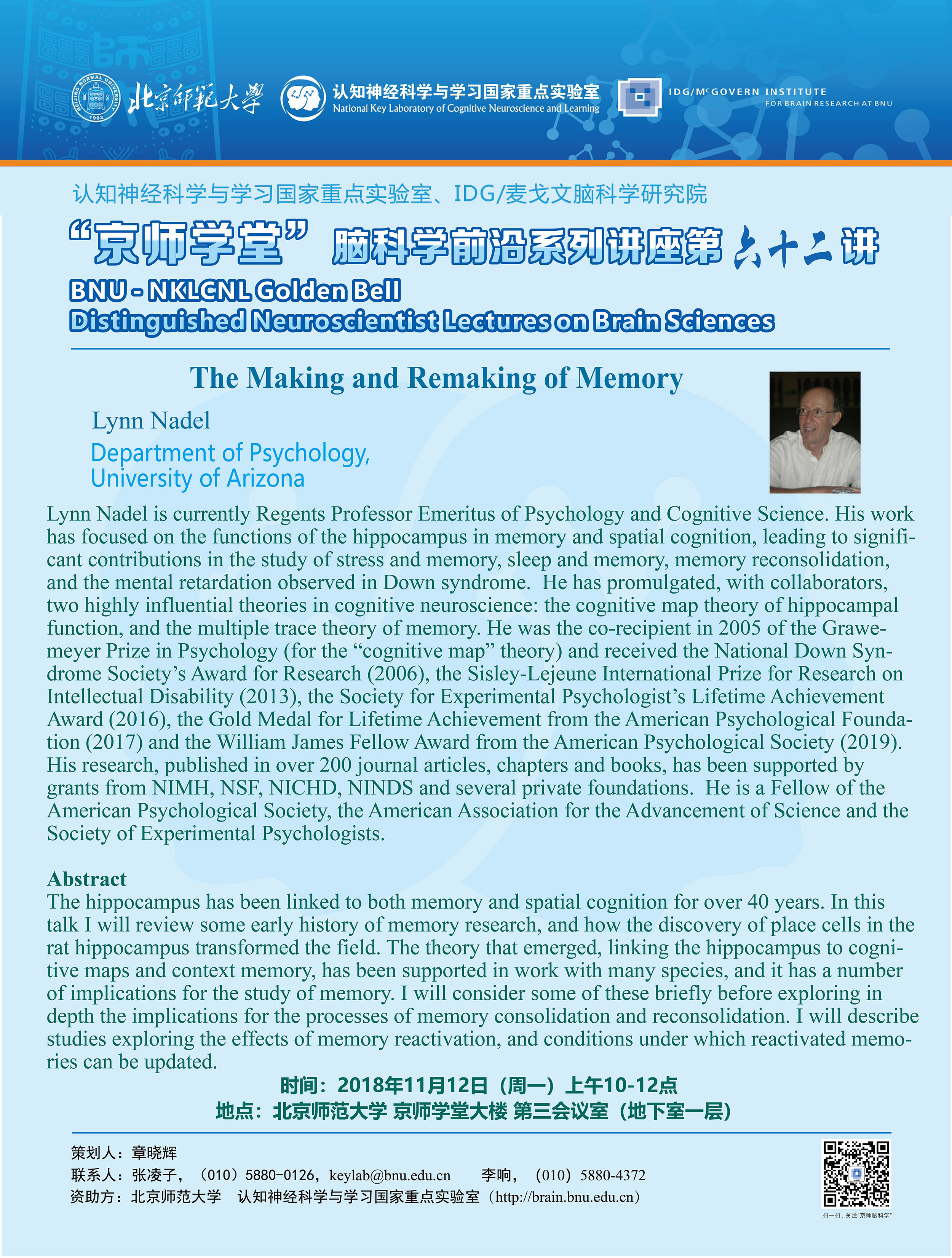The Makingand Remaking of Memory
Lynn Nadel
Department ofPsychology, University of Arizona
时间:2018年11月12日 上午10-12点
地点:北京师范大学京师学堂大楼第三会议室(地下一层)
报告人简介:
Lynn Nadel iscurrently Regents Professor Emeritus of Psychology and Cognitive Science. Hiswork has focused on the functions of the hippocampus in memory and spatialcognition, leading to significant contributions in the study of stress andmemory, sleep and memory, memory reconsolidation, and the mental retardationobserved in Down syndrome. He haspromulgated, with collaborators, two highly influential theories in cognitiveneuroscience: the cognitive map theory of hippocampal function, and themultiple trace theory of memory. He was the co-recipient in 2005 of theGrawemeyer Prize in Psychology (for the “cognitive map” theory) and receivedthe National Down Syndrome Society’s Award for Research (2006), theSisley-Lejeune International Prize for Research on Intellectual Disability(2013), the Society for Experimental Psychologist’s Lifetime Achievement Award(2016), the Gold Medal for Lifetime Achievement from the American PsychologicalFoundation (2017) and the William James Fellow Award from the AmericanPsychological Society (2019). Hisresearch, published in over 200 journal articles, chapters and books, has beensupported by grants from NIMH, NSF, NICHD, NINDS and several private foundations. He is a Fellow of the American PsychologicalSociety, the American Association for the Advancement of Science and theSociety of Experimental Psychologists.
报告摘要:
Thehippocampus has been linked to both memory and spatial cognition for over 40years. In this talk I will review some early history of memory research, andhow the discovery of place cells in the rat hippocampus transformed the field. Thetheory that emerged, linking the hippocampus to cognitive maps and contextmemory, has been supported in work with many species, and it has a number ofimplications for the study of memory. I will consider some of these brieflybefore exploring in depth the implications for the processes of memory consolidationand reconsolidation. I will describe studies exploring the effects of memoryreactivation, and conditions under which reactivated memories can be updated.
